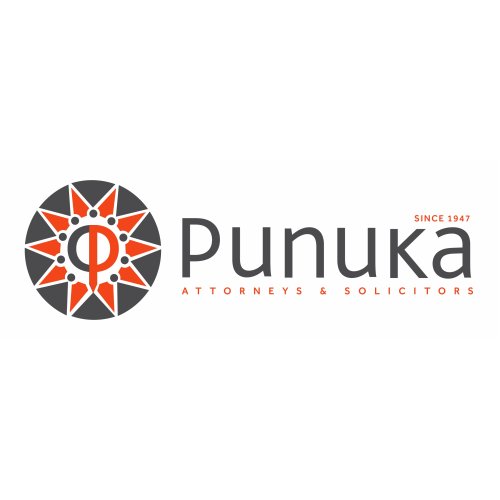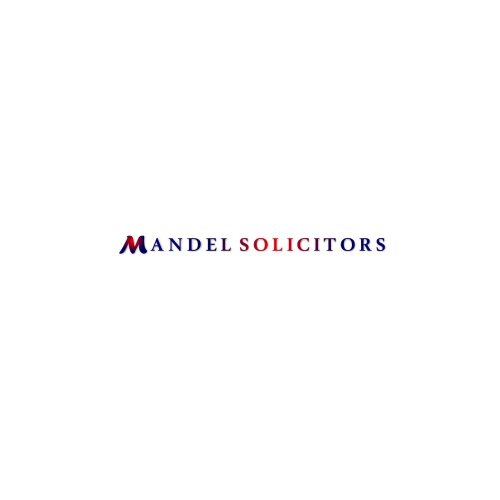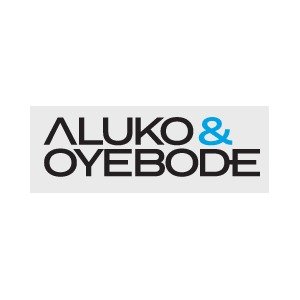Best Telecommunications and Broadcast Lawyers in Nigeria
Share your needs with us, get contacted by law firms.
Free. Takes 2 min.
Or refine your search by selecting a city:
List of the best lawyers in Nigeria
Legal guides written by Adeola Oyinlade & Co:
- Procedure and Requirements for Work Permit and Visas in Nigeria
- The Step-By-Step Procedure of How to Apply for Microfinance Bank License Online in Nigeria
- How to Ensure the Smooth Recognition and Enforcement of Foreign Judgments in Nigeria
Nigeria Telecommunications and Broadcast Legal Articles
Browse our 1 legal article about Telecommunications and Broadcast in Nigeria written by expert lawyers.
- Telecommunication Services in Nigeria: The Available Legal Rights and Remedies to Customers (Subscribers)
- Telecommunications services are essential to modern society, which facilitates global communication, business, and connectivity. In recent years, Nigeria's telecommunications business has developed and expanded greatly, owing to technology breakthroughs and regulatory reforms. However, in addition to these advancements, consumers frequently face issues such as network congestion, call dropouts, and insufficient... Read more →
About Telecommunications and Broadcast Law in Nigeria
The telecommunications and broadcast sector in Nigeria has experienced significant growth and transformation, becoming a critical part of the country’s economy and daily life. Governed by the Nigerian Communications Commission (NCC) and regulated under the Nigerian Communications Act, telecommunications law deals with the regulation of electronic communications networks and services. Broadcast law, meanwhile, pertains to the dissemination of content via mediums such as radio, television, and online platforms, regulated by the National Broadcasting Commission (NBC). These laws ensure fair competition, protect consumer rights, and govern licenses and compliance standards.
Why You May Need a Lawyer
Engaging with telecommunications and broadcast sectors often involves complex regulatory and compliance challenges. You may need a lawyer if:
- You are starting a telecommunications business, requiring understanding and navigation of licensing and regulatory requirements.
- You face compliance issues with broadcast content or frequency allocation.
- There are challenges related to intellectual property, such as content piracy or copyright issues.
- You require negotiation of contracts for service provision or broadcast rights.
- You encounter disputes related to billing, service quality, or interconnectivity.
- You seek to understand the implications of new technological deployments, such as 5G or satellite communications.
- You are involved in mergers and acquisitions in the telecommunications or broadcast fields.
Local Laws Overview
Nigeria's telecommunications and broadcast laws are shaped by both national regulations and international standards. Key aspects include:
- The Nigerian Communications Act governs the licensing, regulatory, and tariff processes for telecommunications services and operators.
- The National Broadcasting Commission Act sets out the framework for licensing and content regulation for broadcasters, including radio, television, and digital content platforms.
- The Cybercrimes Act impacts telecommunications by addressing cybersecurity, data protection, and privacy concerns.
- The Freedom of Information Act influences how broadcast media operates in terms of content transparency and access to information.
- Telecommunications guidelines on consumer protection, such as the Quality of Service Regulations and Customer Code of Practice Regulations.
- Broadcasting guidelines for advertising, children’s programming, and political broadcasts to ensure ethical standards.
Frequently Asked Questions
What is the role of the Nigerian Communications Commission (NCC)?
The NCC is the regulatory body responsible for creating an enabling environment for competition among operators and ensuring the provision of qualitative and efficient telecommunications services throughout Nigeria.
What are the licensing requirements for starting a telecommunications company in Nigeria?
Licensing involves obtaining the necessary permits from the NCC, which requires compliance with technical, legal, and financial criteria as described by the Nigerian Communications Act.
How is broadcast content regulated in Nigeria?
The National Broadcasting Commission (NBC) regulates all broadcast content to ensure adherence to ethical standards, cultural sensitivities, and legal requirements.
What are the consequences of non-compliance with telecom regulations?
Consequences of non-compliance can include fines, revocation of licenses, legal penalties, or other disciplinary actions by the NCC.
How can disputes between telecommunications operators and consumers be resolved?
Disputes may be resolved through mediation by the NCC, arbitration, or legal proceedings in accordance with the Customer Complaints Management process.
What does the Freedom of Information Act mean for broadcasters?
It allows broadcasters to access public information held by government bodies, promoting transparency and accountability in governance.
Are there special legal considerations for digital broadcasters?
Yes, digital broadcasters must adhere to the same licensing and ethical standards as traditional broadcasters, with additional considerations for cybersecurity and data protection laws.
What are the privacy regulations related to telecommunications?
The Nigerian Data Protection Regulation and Cybercrimes Act govern privacy issues, mandating consent and protection of user data.
Can foreign companies operate telecommunications services in Nigeria?
Yes, but they must comply with local laws, which may include setting up a Nigerian subsidiary or partnering with a local entity.
What is the importance of interconnectivity regulation?
Interconnectivity ensures seamless communication between different networks and is crucial for fair competition and consumer protection.
Additional Resources
To further understand the legal environment, consider engaging with the following resources:
- The Nigerian Communications Commission (NCC) for regulatory information.
- The National Broadcasting Commission (NBC) for guidelines on broadcast operations.
- The Ministry of Communications and Digital Economy for policy changes and national strategies.
- The Nigerian Bar Association (NBA) for connecting with specialized legal practitioners.
Next Steps
If you require legal assistance in telecommunications and broadcast, consider these steps:
- Identify and consult with a legal professional specialized in telecommunications and media law.
- Gather all relevant documentation related to your issue to facilitate clear communication and effective legal advice.
- Consider attending industry seminars and workshops to stay informed about changes in telecommunications and broadcast law.
- Connect with professional networks or associations in the telecommunications and broadcast industry for peer advice and support.
Lawzana helps you find the best lawyers and law firms in Nigeria through a curated and pre-screened list of qualified legal professionals. Our platform offers rankings and detailed profiles of attorneys and law firms, allowing you to compare based on practice areas, including Telecommunications and Broadcast, experience, and client feedback.
Each profile includes a description of the firm's areas of practice, client reviews, team members and partners, year of establishment, spoken languages, office locations, contact information, social media presence, and any published articles or resources. Most firms on our platform speak English and are experienced in both local and international legal matters.
Get a quote from top-rated law firms in Nigeria — quickly, securely, and without unnecessary hassle.
Disclaimer:
The information provided on this page is for general informational purposes only and does not constitute legal advice. While we strive to ensure the accuracy and relevance of the content, legal information may change over time, and interpretations of the law can vary. You should always consult with a qualified legal professional for advice specific to your situation.
We disclaim all liability for actions taken or not taken based on the content of this page. If you believe any information is incorrect or outdated, please contact us, and we will review and update it where appropriate.
Browse telecommunications and broadcast law firms by city in Nigeria
Refine your search by selecting a city.

















